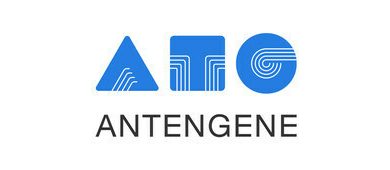Based on Zenity Labs research, the company closes critical security gaps in OpenAI’s guardrails with real-time rule based enforcement
NEW YORK–(BUSINESS WIRE)–#AIAgentSecuritySummit—Zenity, the leading end-to-end security and governance platform for AI agents, today announced runtime protection for OpenAI’s AgentKit, providing enterprise-grade enforcement that detects and blocks data leakage, secret exposure and unsafe agent behavior in real time.
This launch follows Zenity Labs’ recent research exposing critical gaps in OpenAI’s AgentKit guardrails that can be bypassed through prompt injection, response obfuscation, credential exposure and other attack vectors. By adding runtime protection to AgentKit, Zenity closes these gaps by inspecting agent behavior and intent at the endpoint and enforcing deterministic, policy-based security that blocks unsafe or noncompliant actions before responses reach the user.
Understanding OpenAI’s AgentKit
OpenAI’s AgentKit enables developers to build and deploy autonomous AI agents through Agent Builder, ChatKit and the Connector Registry. It accelerates innovation but also expands the attack surface, leaving gaps where guardrails may miss nuanced or complex threats. This creates new security and compliance challenges as enterprises begin adopting AgentKit for internal and customer-facing workflows.
Closing Guardrail Gaps with Rule-Based Enforcement
Zenity’s endpoint-level protection inspects every interaction between users and agents built with AgentKit, identifying and blocking risky behavior in real time. Unlike probabilistic guardrails, Zenity delivers deterministic, rule-based enforcement. It applies clear, predefined security rules to ensure predictable, enforceable protection. Zenity extends runtime detection and response capabilities to OpenAI AgentKit, delivering:
- Data Leakage Detection: Identifies and blocks attempts by agents to exfiltrate sensitive or regulated information.
- Secrets Exposure Prevention: Detects embedded credentials or keys in responses and blocks actions before exposure.
- Unsafe Response Blocking: Prevents interactions that violate policy, compliance standards, or brand trust from being delivered.
“AgentKit accelerates how AI agents are built and scaled, but it also expands the attack surface overnight,” said Michael Bargury, CTO and co-founder of Zenity. “Our research shows that AgentKit’s guardrails can miss critical risks – from subtle prompt injections to hidden data leakage. Zenity’s runtime protection closes that gap by inspecting every response, understanding intent and enforcing security policies.”
The launch gives security teams a way to address guardrail gaps in AgentKit as agentic AI adoption grows. For more information about Zenity’s runtime protection for OpenAI AgentKit, visit the Zenity for ChatGPT Enterprise page.
About Zenity
Zenity is the first security and governance platform purpose-built for AI agents – spanning SaaS, home grown platforms (Cloud), and end-user devices (Endpoint). Trusted by Fortune 500 enterprises, Zenity helps security teams confidently adopt AI by delivering defense in depth with full-lifecycle coverage: from agent discovery and posture management to real-time detection, inline prevention, and response. With an agent-centric approach that prioritizes how agents behave, what they access, and which tools they invoke, Zenity eliminates blind spots and enforces consistent policy and controls across environments so organizations can innovate with AI, without compromising security. Learn more at www.zenity.io.
Contacts
Media Contact for Zenity
Elyse Familant
Results PR
[email protected]





